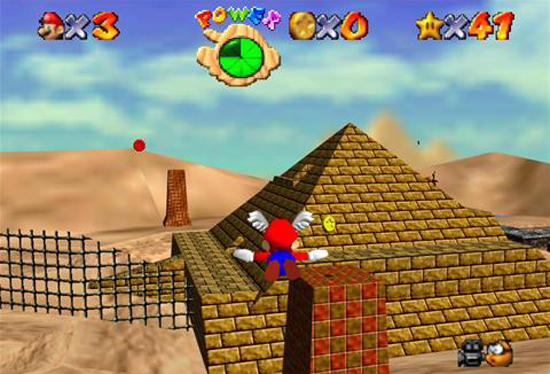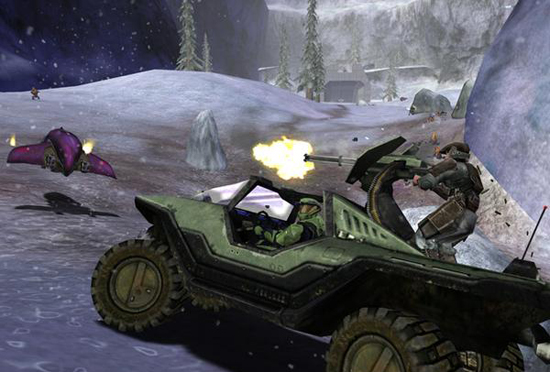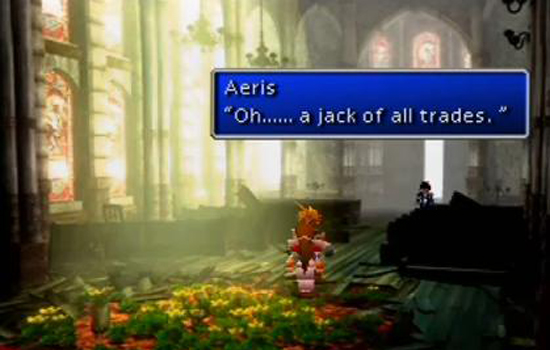This post has not been edited by the GamesBeat staff. Opinions by GamesBeat community writers do not necessarily reflect those of the staff.

Ocarina of Time is the best game ever. No, Halo is the best game ever. Super Mario 64 is the best 3D platformer of all time. Final Fantasy 7 is the greatest RPG ever made.
Wii Sports is overrated. Ocarina of Time is overrated. And what's so great about Halo, anyway? GoldenEye is better. I can't wait for the Wii version — I just wish it was on a real console. Everyone knows the Wii itself is overrated. Etc., etc.
Now listen: I've got something to say.
No game has been the best game ever, in any category. There is no best RPG, there is no best shooter, and there is no best motion-controlled, sports-themed minigame collection.
Likewise — and it may be shocking to hear this — there are no overrated games. There are simply games that garner a lot of attention, people who hyperbolize about those games, and other people who can't for the life of them understand why.
But games that attract enough attention to in turn attract the attention of people who like to criticize games that attract a lot of attention — well, they attract that attention for a reason.
Some games are given undue focus by the media, like Grand Theft Auto. Some get noticed because they're nearly perfect (Portal) or pieces of crap (Kane and Lynch). Others do it by completely betraying people's expectations, like Dark Void and Alpha Protocol.
There is another reason why some games draw attention, though: They do something new. It's these games that occasion the most hype, homage, and hyperbole, and they're the ones most often written off as "overrated" by those who simply fail to understand their significance.

Super Mario 64 isn't the best game ever, nor is it the best 3D game, the best platformer, the best 3D platformer, or even the best game starring Mario. But it sure as hell isn't overrated.
It's sometimes hard to remember that at the time of Mario 64's release, the mustachioed one was already insanely popular. He didn't need a series refresh; the side-scrolling platformer thing was working. Mario practically saved U.S. gaming in the '80s, and it took decades for the Western game industry to catch up with the Rising Sun in the East.
For Mario to make the jump (ha) to 3D was unnerving. No one knew what to expect, and plenty of people probably thought it would be the end of the chubby plumber's glory days. And yet the game was revolutionary. The simple fact that players could walk forward, backward, left, or right — and that it was fun to do so — meant gaming would never be the same.

Halo: Combat Evolved is far from the best game ever, nor is Halo 2, Halo 3, Halo 3: ODST, or Halo: Reach (which I played to death last week — and yes, it's an excellent game). Why all the hubbub, then?
Think about it. Comparisons with Half-Life or Quake 3 Arena or whatever else was popular on PC at the time are irrelevant; Half-Life fans weren't buying Xboxes. The big black boxes were being purchased by gamers who had only recently been acquainted with the concept of the first-person shooter. GoldenEye started the revolution on consoles before Perfect Dark bested it in every way. Then, a year and a half later, Halo arrived.
The jolt from Perfect Dark to Halo was, for many, many people, an indescribably awesome experience. Halo and the Xbox brought countless innovations to the console shooter: dual analog controls, recharging health, the two-gun limit, a grenade button, vehicular combat, physics, a plot that made sense (more than that: the plot was compelling), ingenious A.I., huge environments, layer upon layer of strategy…the list goes on.
Halo 2 sweetened the pot by adding online matchmaking, oiling the wheels of the Xbox Live experience, which until then had far too closely resembled the online play found on PCs. Halo 3 brought the trilogy to a satisfying conclusion, ODST was a moody spinoff, and Reach perfects the whole formula. People loved Halo because it was different, new, and lovingly crafted.

If you still don't get it, you're not trying hard enough.
Final Fantasy 7, while rife with imperfections, inconsistencies, and, in general, a whole lot of nonsense, brought JRPGs to the Western hemisphere. Can the value of that gaming triumph really be quantified?
Wii Sports drew in thousands — perhaps millions — of people who would have never given gaming a second glance. It may be trite at this point, but your mom and dad, girlfriend, and co-workers playing video games? That's significant. It's a huge deal. The Wii (and Wii Sports, which to many is synonymous with the system itself) has generated more revenue for our thriving hobby than anything, ever. If you're wondering why Nintendo's lineup right now is so incredible, you can start thanking Wii Sports for the very existence of Mario Galaxy 2, Kirby's Epic Yarn, Donkey Kong Country Returns, Metroid: Other M, yada yada yada.
Yeah, I got over it after a month, too, but can you really call that legacy overrated?
Ocarina of Time ushered adventure gaming into the 3D era, much as Mario 64 did for 3D itself. GoldenEye was the first console shooter that was even worth anything at all, much less a challenging, engaging, diverse experience. And four-player splitscreen multiplayer? Get out of town!
Petty squabbling and nitpicking aside, there are similar things to be said about any game that's ever been called overrated. Games don't warrant that kind of veneration for no reason, and calling classic games overrated comes off as pretty ignorant.
So the next time you feel the urge to drop the O-bomb, try examining a game in the context of what it accomplished, rather than how your jaded gamer's brain sees it now. We'll all be better off.
